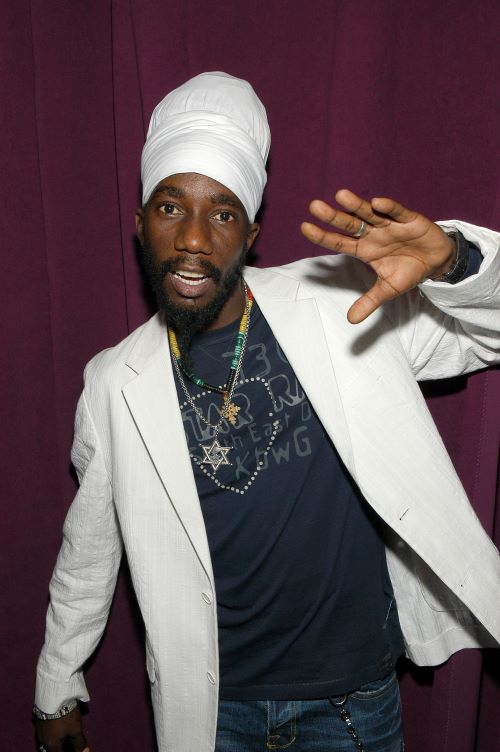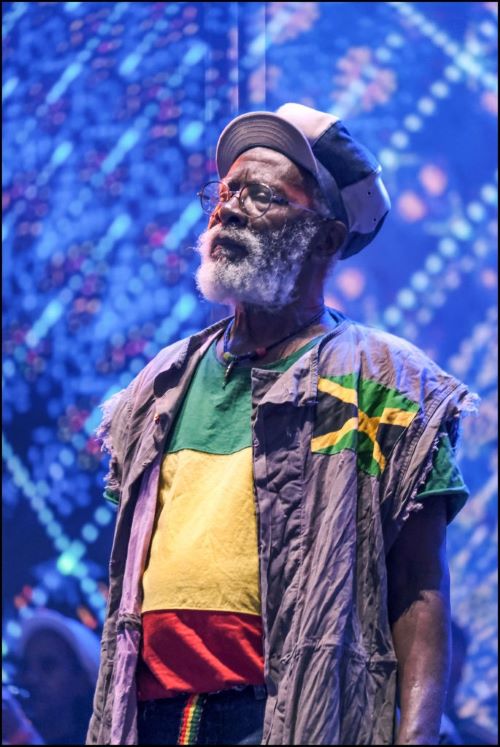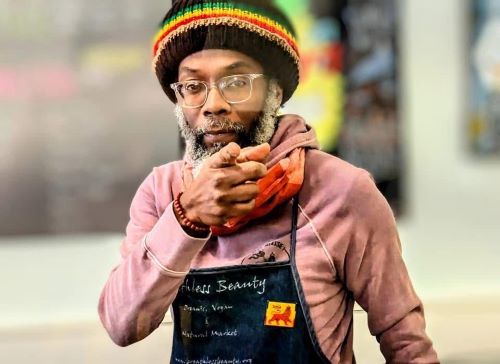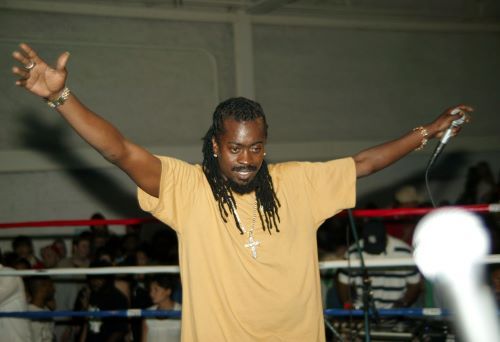REGGAE ARTISTS from around the world are demanding reparations for Caribbean and African nations impacted by the horrors of the Transatlantic Slave Trade.
These artists are lending their voices to the growing demands of Caribbean leaders for reparations for the Transatlantic slave trade, spotlighting the lasting impact of slavery on the region and its people.
Calls for justice
Through their music and powerful platforms they are echoing the calls of Caribbean leaders for justice and highlighting the enduring economic and social inequalities rooted in the era of slavery.
Reggae has long been a vehicle for activism. Whether it is Burning Spear’s iconic anthem Slavery Day’s which he asks throughout “Do you remember the days of slavery?”, Peter Tosh’s unapologetic 400 years, or Bob Marley’s heartfelt Redemption Song, reggae artists have always made significant contributions to raising awareness slavery and the urgent need for reparations.
This has continued in more recent times as Jamaican artists such as Sizzla, Anthony B, Buju Banton, and others have penned songs condemning the cruel and barbaric act of slavery and its ongoing legacy.

Now, as a new generation of reggae stars like Kabaka Pyramid and Chronixx continue to highlight the present-day impact of slavery, the call for reparations among musicians is likely to get louder.
Among them is singer-songwriter Rocky Dawuni who is a four-time Grammy-nominated artist. He believes no amount of money will ever be enough to compensate for how slavery destroyed the lives of millions of Black people and impacted the future development of Africa.
According to Dawuni, who hails from Ghana, reparations are needed to create a “level playing” field for people of African descent.
Noble
“The call for reparations is noble because there needs to be level playing ground” he tells The Voice.
“A lot of our people, our thinkers, our leaders, our philosophers, scientists – people who were part of nurturing our society and building it and strengthening it, were also yanked and taken from away us.
“It will take a long time again to really replenish that human capacity and resources that has been taken, although it is not overtly visible right now, but we know that it has cost us.”
He added it is imperative that any reparations also address the psychological impact that slavery has had on the continent and the African diaspora.
“There are generational wounds and generational trauma that is embedded in the core of your DNA,” he says.

According to Dawuni tribalism and “cultural hierarchies” are just some examples of the “deep-seated tribal divisions” that are part of the legacy of slavery in modern-day Africa.
“I believe these were fostered during the early stages of slavery because you can only conquer a people if you turn them against each other.
“There was a system that came in and exploited the harmony and unity of the people and created division and through that division they were not able to come together to fight it as a collective.”
It is estimated more than 15 million African men, women and children were kidnapped and sold into slavery in the Caribbean, South America and the United States in a period spanning 400 years.
Empowering music
Dawuni uses uplifting music to empower Black communities, highlighting their strength and history.
His Grammy-nominated song Rise addresses racism, police brutality, and the legacy of slavery with powerful lyrics that call for action to ensure these injustices are never repeated again.
However, like many in the community, the singer has some reservations about how reparations for the slave trade will be distributed and who will be in charge of facilitating it.
“Which hands are clean enough to make sure that this is something that goes to the investment into the plight of people of African descent who are the most discriminated upon and the most dispossessed in the diaspora” he says.

“Money and reparations also attract the worst kind, who are also coming for a second helping to take advantage of this to further exploit people.”
He continues: “We have to be careful in the long run that this does not become another opportunity for another form of exploitation.”
The call for reparations often faces the argument that African nations should bear responsibility because some were involved in the slave trade—a narrative Dawuni has heard and firmly rejects.
“The African nations did not have ships here, they didn’t have plantations, they didn’t come here with a business mind to capture people and go and subjugate them” he says.
“They were not the architects of that systemic plan. It is a push back to try and absolve certain people and certain powers of a crime against humanity that was committed a long time ago.”
According to the landmark, Brattle Report, Britain owes a staggering £18.6 trillion in reparations to the Caribbean and the Americas.
The calculation was made by academics for the prestigious University of the West Indies (UWI) and takes into account the loss of liberty, forgone earnings, deprivation, mental pain, intergenerational trauma, loss of heritage, differences in life expectancy, unemployment and income disparity after emancipation.
Ongoing impact of slavery
Addressing the ongoing impact of slavery in the Caribbean dancehall legend Beenie Man said its legacy is directly seen today in colourism which is still rife in many parts of Jamaica and the Caribbean.
In a 2021 interview with The Voice he said:“A brown man ah tell a Black man he’s better looking than him, that nuh make no sense.
“That is black-on-black racism, that is the worst type of racism to have.”
“Black-on-black racism is something deep which they beat into the heart of slaves from white people and it’s still in your DNA,” he added.
Nicholas Dillon is a reggae singer from Trinidad and Tobago, who performs internationally under his stage name D’Original Reverence.
He told The Voice, he fully supports reparations for Caribbean nations and describes slavery as a “human rights violation”.
“I absolutely support the call for reparations both past and present, including what is growing” he says. “One of the things that stands out profoundly is our lack of self-esteem, our lack of personal dignity.”
Dillon visits his twin-island home country regularly and among the glaring legacies of slavery in the country are colourism and post-colonial power structures.
The call for reparations is noble because there needs to be level playing ground. A lot of our people, our thinkers, our leaders, our philosophers, scientists – people who were part of nurturing our society and building it and strengthening it, were also yanked and taken from away us
Rocky Dawuni
Like Beenie Man, he says that a person’s complexion will often define who is given better opportunities and who is not.
“The hierarchy of who are the leaders or the upper class, the classism in the Caribbean is a direct link to the slavery systems that were present here, but it’s also evident in the day-to-day energy and vibration of the people” he says.
“Even in music, if you are of a lighter complexion the industry seems to let you go forward and ahead of others.”
The singer also believes that the legacy of colonialism often means that Caribbean-born people often face a tough fight to access things such as social and health services or acquire land.
Historical inequalities
Jamaican reggae star, Sizzla, is another star who firmly believes that land rights and the lack of access of local people to the country’s beaches is deeply tied to the legacy of the Transatlantic slave trade.
He recently highlighted how those of a “Melanin type” are often denied access to beaches, reflecting historical inequalities rooted in colonialism and slavery.

Addressing the diminishing availability of beaches to local Jamaicans during his performance at BRT Weekend in Jamaica, Sizzla said: “Every time we try and build up yah so, something round there sell out and gone.”
He added: “The beaches dem gone. Look pon di girls dem, which part are we going to put them? They can’t turn up at the beaches again, no one is allowed. Especially if you are the Melanin type.”
His comments echo concerns raised by the Jamaica Beach Birthright Environmental Movement (JABBEM), which argues that the Beach Control Act of 1956—a colonial-era law regulating beach access—is discriminatory and perpetuates the exclusion of Jamaicans, particularly Black Jamaicans, from enjoying their natural heritage.
Dillon says the Caribbean has great potential, but the region cannot be expected to fix all of the issues that they did not create.
Basic human rights
“A lot of people are illiterate, not just from an academic place but financially,” he says. “Historically, that has been a thing that has hampered our development in the Caribbean region.
“We have pockets of success where there are individuals and institutions that come out of our diaspora who stand out but as a child of the Caribbean, and now an adult, I still see this huge disparity.
“The protection of basic human rights, which were stripped from us in the Caribbean during slavery, remains an ongoing issue. We see it through Post-Traumatic Slavery Syndrome.”
He adds that this generation of Caribbean people must make it their duty to speak up for their ancestors.
“It is the duty of us the vanguards of our ancestors, who were enslaved, to do this for them. I feel like in this period in history the Caribbean region and the voice of the people are not as united for things like reparations and social justice because they have been pacified by distractions of social media and things that are not even relevant.
“This continues the victimisation of the people and what amounts to a gross violations of their basic human rights.”


